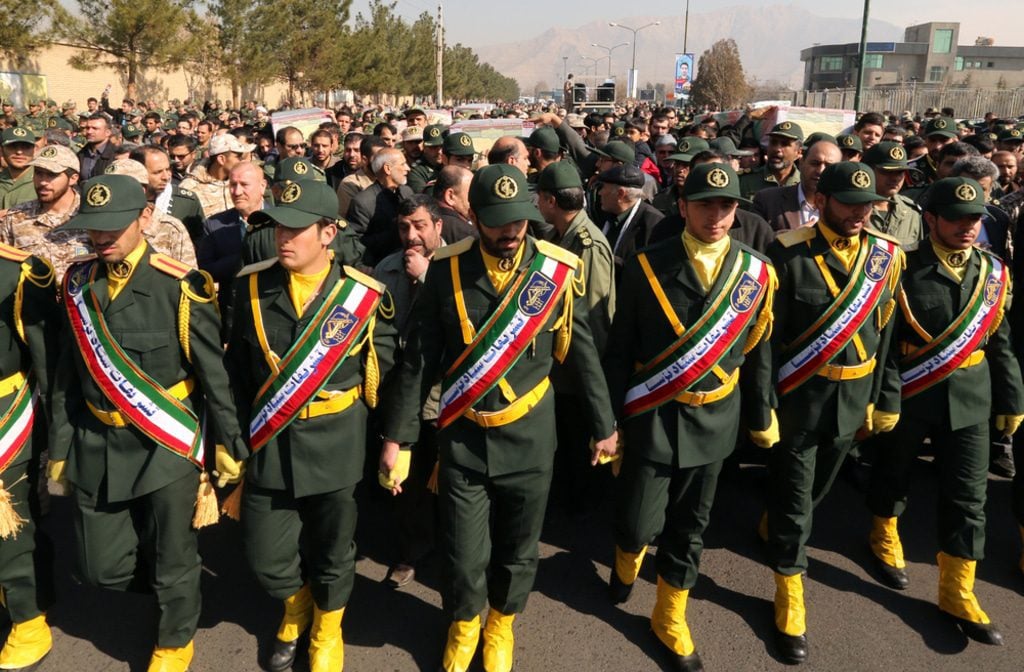The Quds Force is considered as one of the most powerful security agencies in the Middle East. Although the Quds Force has received a lot of media attention, very little is known about this very powerful and secretive Iranian agency.
Iran’s Revolutionary Guards has five units including the Quds Force which is responsible for extraterritorial operations. The Quds Force global activities include, conducting covert diplomacy, providing training, arms, and financial support to groups and organizations, gathering tactical intelligence and facilitating some of Iran’s provisions of humanitarian and economic support to Islamic causes. According to a British official “It combines the functions of MI6, the SAS, and DfID, it is Iran’s long arm – everywhere.”
The Quds Force was established during the Iran–Iraq War (1980-1988) to undertake secret operations inside Iraq. Its secretive operations included providing support to the Iraqi Kurds to fight Saddam Hussein. However, soon the Quds Force started to broaden its activities in other foreign policy priority countries for the Islamic Republic. One of the first regionally significant missions was to help to establish Hezbollah in Lebanon in 1982 after Israeli invasion. The Quds Force provided essential assistance for the creation Hezbollah which developed into the most powerful organization in Lebanon and a powerful ally of Iran.
In the 1980s a major global war was fought next door to Iran in Afghanistan. The US, Pakistan, Saudi Arabia were supporting transnational Jihadi forces and the Afghan Mujahidin to fight against the USSR. Although Iran was in the middle of a bloody war with Iraq, the Quds Force supported the Shia Hezbe Wahdat which in the end did not play a defining role in the war. Following the emergence of the Taliban in Afghanistan they began to support Ahmad Shah Massoud’s Northern Alliance to prevent the further empowering of the Taliban. In recent years, the Quds Force has operated in many other countries like Syria and worked with other sub-state actors such Houthis in Yemen and Hamas in Palestine.

The headquarter of the Quds Force is in the city of Ahwaz in Khuzestan province which has borders both with Iraq and the Persian Gulf. The Quds Force also has offices in many Iranian embassies around the world, which operate as closed sections. In April 2010, a U.S. Department of Defence report accused the Iranian regime of using the Quds Force to “clandestinely exert military, political, and economic power to advance Iranian national interests abroad,”
Given the secretive nature of the Quds Force, there is little information about the exact number of personnel working for this elite force. In 2008, Iran’s Supreme National Security Council increased the number of the Quds Force to 15,000.
Major General Qasem Soleimani has been the commander of the Quds Force since 1998. Although he oversees extraterritorial military and clandestine operations, he is not accountable to the government and the Iranian Foreign Ministry. He is accountable to the Supreme Leader. “Soleimani is the single most powerful operative in the Middle East today and no one’s ever heard of him,” John Maguire, a former C.I.A. officer in Iraq, told the New Yorker magazine in 2013. According to the Guardian “Qassem Suleimani: commander of Quds force is puppeteer of the Middle East”.
Qasem Soleimani played a key role in persuading Russia to launch its military operation in Syria in 2015 which changed the fate of the war. Soleimani and his Quds Force played a defining role in keeping Bashar Assad in power. Soleimani played a leading role in mobilizing Shia fighters from all over the region to go to Syria to maintain the balance of power in favor of Bashar Assad.

The role of the Quds Force in Iraq has been indispensable for the Iraqi government. From the early days of the American invasion in 2003, the Quds Force played a leading role in mobilizing various political and militia Shia factions to both minimise American influence and maximise Iranian role in Iraq. At one point, he personally sent an SMS message to General David Petraeus to the US commander in Iraq stating. “General Petraeus, you should know that I, Qassem Suleimani, control policy for Iran with respect to Iraq, Lebanon, Gaza, and Afghanistan. The ambassador in Baghdad is a Quds force member. The individual who’s going to replace him is a Quds force member.” The current Iranian ambassador to Iraq is General. Iraj Masjedi who has served as an adviser to Soleimani
Given the lack of transparency it is possible that the role of the Quds Force in Iraq is exaggerated. However, it is evident that from 2014, the Quds Force played a leading role in the fight against IS. They played an important role in liberating many cities which were under IS control. This has significantly deepened the Quds Force influence in Iraq. A senior Iraqi official stated that when the city of Mosul fell, the rapid response by Iran, rather than American bombing, was what prevented a more widespread collapse in Iraq. In response to the IS Popular Mobilisation Forces (PMF) were formed on 15 June 2014 due to the passing of the fatwa by Ali al-Sistani. PMF is an Iraqi state-sponsored umbrella organization composed of some 40 mainly Shia militias. Some of these important groups such as Badr Brigade have deep ties with the Quds Force. The Quds Force is considered as one of the main external sponsors of PMF which is increasingly gaining more importance both in Iraq and the region.
.


